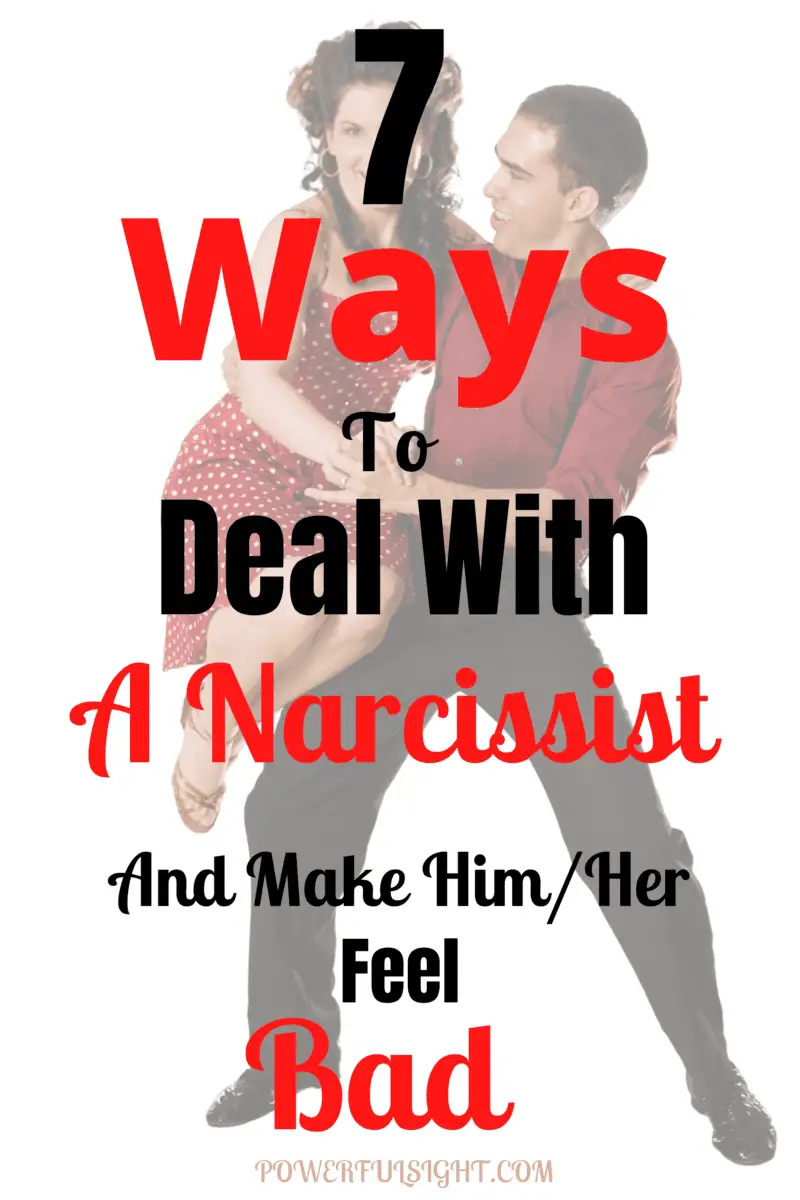Are you dating a narcissist? Probably you’ve been asking yourself ‘how do I take control of a narcissist? Continue reading to learn how to deal with a narcissist.
Narcissistic abuse comes from someone who is seeking power over you. Abusers may use psychological, physical, sexual, and financial abuse. These types of people are manipulative, predatory, and have exploitative personalities.
Narcissistic personality disorder or NPD is both harmful physically and emotionally to the offender and the victim. Here is how to deal with narcissistic abuse in relationships.
Everyone is capable of being abusive when we criticize, judge, control, and withhold our affection from them. However, the narcissistic abuser takes mistreatment to a whole different level by using emotional blackmail, threats, and intimidation.
According to Psychology Today, “Narcissists are masters of verbal abuse and manipulation. They can go so far as to make you doubt your perceptions, called gaslighting.”
Signs of a narcissistic partner
One of the most apparent traits of narcissistic abusers is denying their abusive actions and not taking responsibility for their behaviour.
They turn the tables and blame the victim. Most narcissistic personalities are not bothered by guilt; they are sadistic and take pleasure in inflicting pain. It is hard to combat and stand up to a narcissistic abuser.
Narcissistic abusers have the goal to dominate you, increase their control, and create shame, dependency, and doubt in your mind.
Narcissist partners are bullies, and deep inside, they suffer from guilt and shame. If you appear weak, this causes abusers fear and loathing for you. Once you notice this about your partner, learn not to take their words and actions personally.
Read also, signs of a toxic relationship

How To Deal With A Narcissist
1. Confront the abuser
The first way to deal with a narcissist is to confront them. You know that you are being abused, and your self-esteem is being injured. Confront your abuser. Do not fight and argue, but stand in your position and speak up for yourself. Speak clearly and calmly and set boundaries for yourself.
2. Understand you have the right to respect
You have the right to your feelings and opinions. You can deny your abuser sex if you want, and you also have a right to privacy. In other words, you deserve not to be disrespected, shouted at, or touched.
Related: 10 Signs of an abusive man in a relationship.
3. Be assertive
Learn to always speak your mind and not be passive or in a fighting mood. You can try these tactics, and say, “I don’t like it when you criticize me. Please stop” Then walk away. Agree to parts of the conversation between you and your narcissist partner if they are real but deny the hollow portions of the conversation.
Related: Signs of emotional abuse and how to handle it
4. Know what you want
Dealing with highly defensive people with an apparent personality disorder is difficult, but if you do not sink to their level, avoid feeding their ego, and do not take responsibility for their emotions, you can get through it.
5. Learn to set boundaries
Even a narcissistic abuser will treat you the way you let them. Getting in touch with your feelings, knowing your rights, and learning assertiveness will be great. Be explicit; most people cannot read your mind.
Related: How to set healthy boundaries in a relationship
6. Educate your abuser
There is research that shows narcissists have neurological deficits that affect their interpersonal reactions. Try to explain the consequences of their behaviour, encourage them to get help, and list out incentives for changing their behaviour. Encouragement and motivations require planning and do not be emotional when you confront your narcissistic abuser.
7. Seek professional help
If doing the above-mentioned did not work, seek professional help. If you have been abused for a long time, your self-esteem is probably diminished. You do not trust yourself, and your confidence is gone. The best thing to do is to seek therapy and get support.
Read also: Signs your boyfriend is controlling you and what to do
What not to do when you are being abused by a narcissist
1. Do not placate the abuser
You want to avoid conflict, but this only empowers your abuser. They will see your appeasement as a weakness and an opportunity to abuse you even more.
2. Do not plea with your abuser
Pleading is a trait that narcissists hate, and they will react with contempt or disgust.
3. Fighting and arguing waste energy
Most narcissists do not care what you think; they only want you to know they are right. Arguments quickly escalate into fights that damage you and empower your abuser. You will lose and feel more hurt and hopeless.
4. Do not try to defend yourself
A simple denial of an accusation will leave you open to more abuse, yelling, and lecturing. When you try to defend your position, you are giving your narcissistic partner the right to judge, approve of, or even abuse you further. You are inadvertently saying, “ you can approve or disapprove of me. You are my judge.”
5. Avoid blaming yourself for your abuser’s actions
Do not try harder to be perfect; this is a delusion. You are responsible for your behaviour. You will never be precise enough for your abuser, so do not blame yourself.
6. Avoid accusing, minimizing, or rationalizing the abuse
Please do not believe it will go away or improve any time soon. You only become weaker; the more your denial grows.
7. Do not seek understanding
A narcissist is not interested in understanding you or having you know them. They only want to win a conflict and be superior. Avoid sharing your emotions or feelings that may be used as a manipulation tool.
8. Avoid making threats that can backfire
Never issue a danger you are not ready to carry out. Try boundaries with consequences instead.
9. Criticizing is not a good idea
Narcissists act tough, but they are insecure. They can give out the abuse, but they cannot take it. You will only provoke vindictiveness and rage if you try and criticize.
Conclusion
Finally, to be successful, you need to find support for both of you. Without help, you will probably find yourself wallowing in self-doubt that eventually succumbs to the abuser.
Do expect a narcissist to push back when you are assertive. Use courage and consistency. You may not get the narcissist to make changes, but you now have the tools to protect yourself and raise your confidence.
Before you go, read my next article on how to let go of a narcissistic relationship.
SAVE THE PIN FOR LATER

